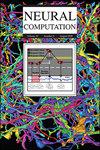从功能到实现:探索进化人工智能体的退化。
IF 2.1
4区 计算机科学
Q3 COMPUTER SCIENCE, ARTIFICIAL INTELLIGENCE
引用次数: 0
摘要
简并性——不同结构执行相同功能的能力——是生物系统的基本特征,有助于它们的稳健性和进化性。然而,通过自适应过程产生的系统中普遍存在的退化使我们对它们所采用的行为和计算策略的理解变得复杂。在这项研究中,我们研究了简单计算智能体的退化性,即马尔可夫大脑,使用人工进化算法进行训练,以解决有或没有联想记忆的空间导航任务。我们分析了三个层次的退化:行为,结构和计算,重点是最后一个。托诺尼等人(1999)利用信息论概念提出了生物网络退化的功能度量。在这里,我们扩展了这种方法来比较多个网络的简并度。利用信息论工具和因果分析,我们探索了进化智能体的计算策略,并量化了它们的计算退化。我们的发现揭示了退化解的层次结构,从不同的行为到不同的结构和计算。即使具有相同进化行为的智能体也表现出不同的底层结构和计算方式。这些结果强调了神经网络退化的普遍性,模糊了自适应系统中算法和实现层次之间的界限,并强调了先进分析工具对理解其复杂行为的重要性。本文章由计算机程序翻译,如有差异,请以英文原文为准。
From Function to Implementation: Exploring Degeneracy in Evolved Artificial Agents
Degeneracy—the ability of different structures to perform the same function—is a fundamental feature of biological systems, contributing to their robustness and evolvability. However, the ubiquity of degeneracy in systems generated through adaptive processes complicates our understanding of the behavioral and computational strategies they employ. In this study, we investigated degeneracy in simple computational agents, known as Markov brains, trained using an artificial evolution algorithm to solve a spatial navigation task with or without associative memory. We analyzed degeneracy at three levels: behavioral, structural, and computational, with a focus on the last. Using information-theoretical concepts, Tononi et al. (1999) proposed a functional measure of degeneracy within biological networks. Here, we extended this approach to compare degeneracy across multiple networks. Using information-theoretical tools and causal analysis, we explored the computational strategies of the evolved agents and quantified their computational degeneracy. Our findings reveal a hierarchy of degenerate solutions, from varied behaviors to diverse structures and computations. Even agents with identical evolved behaviors demonstrated different underlying structures and computations. These results underscore the pervasive nature of degeneracy in neural networks, blurring the lines between the algorithmic and implementation levels in adaptive systems, and highlight the importance of advanced analytical tools to understand their complex behaviors.
求助全文
通过发布文献求助,成功后即可免费获取论文全文。
去求助
来源期刊

Neural Computation
工程技术-计算机:人工智能
CiteScore
6.30
自引率
3.40%
发文量
83
审稿时长
3.0 months
期刊介绍:
Neural Computation is uniquely positioned at the crossroads between neuroscience and TMCS and welcomes the submission of original papers from all areas of TMCS, including: Advanced experimental design; Analysis of chemical sensor data; Connectomic reconstructions; Analysis of multielectrode and optical recordings; Genetic data for cell identity; Analysis of behavioral data; Multiscale models; Analysis of molecular mechanisms; Neuroinformatics; Analysis of brain imaging data; Neuromorphic engineering; Principles of neural coding, computation, circuit dynamics, and plasticity; Theories of brain function.
 求助内容:
求助内容: 应助结果提醒方式:
应助结果提醒方式:


